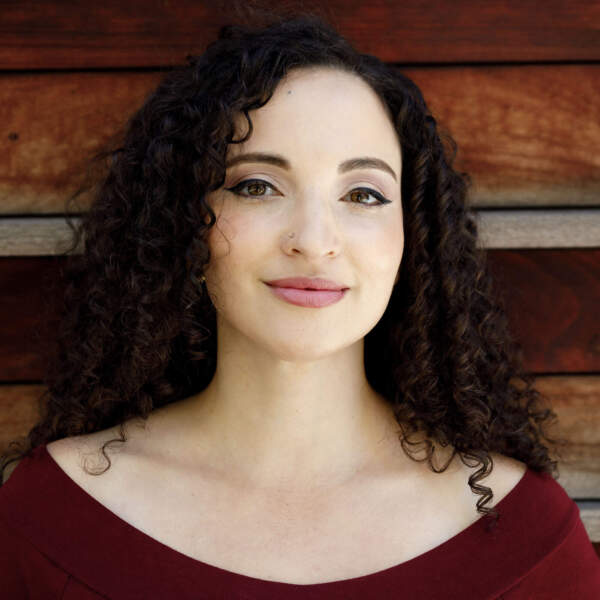Advertisement
3 grads talk about tumultuous high school experiences that started with COVID
Resume
The high school class of 2024 has been through a lot, to say the least. Most began high school remotely due to the pandemic. Then came the next four years filled with social isolation, the rapid rise of new technologies, political divisions and protests.
As Massachusetts seniors walked across the stage this month, we sat down with three graduates to ask them to reflect on their high school experience.
Radio Boston spoke to Jelani Tah, who graduated from Malden High School; Marcelyn Tavares, who graduated from City on a Hill Charter Public School in Boston; and Natalia Feliz, who graduated from Salem High School.
Interview highlights
On COVID-19's presence at graduation
Marcelyn Tavares: "It felt like a thing in the past of ... Something we overcame because, in eighth grade, we didn't have graduation, and now that we're at graduation, walking the stage, it was like a proud moment."
Jelani Tah: "We didn't really think about it until the last couple of days ... when we were in high school. Our principal was talking about how we were the first class to overcome the pandemic, our teachers were talking about it and I guess it really got us thinking about like remembering that we had that experience. Otherwise, we probably would have forgotten it."
Natalia Feliz: "I feel like it was really a freshman, sophomore type of thing, because even my junior year, it kind of felt like in the past."
On navigating through high school as a sophomore
Tavares: "It was so different. It was so new. We were at the same level as the freshmen."
Feliz: "Academically, things were a little challenging ... As a sophomore, what do you do if you're really a freshman, really an eighth grader? Like, we were set back two years, it felt."
Tah: "I feel like the interesting thing that happens with like a lot of students ... no matter what level you kind of start out with during that senior year to the transition to college, like that's the time where everyone kind of like levels off. We're all kind of looking at the same areas. We all have the same set of goals and ideals, and I think no matter where you end up starting, even for us who came in late and for the other class who missed your high school graduation ... I think once they hit that senior year, everything kind of balanced out."
On students' use of social media to rebuild connections
Tah: "For me, it was kind of like this burden of not really knowing how to connect with the rest of the class, coming off that eighth-grade year not having the graduation. It was kind of a weird summer where we were all indoors.
"We didn't really have that connection and that's like one of the most important things about the school experience, especially in high school ... and when you can't build that connection in person, we're kind of like forced to build that online. That's where we're seeing all the kind of warnings about social media, how that kind of exacerbated. ... Social media is kind of like that crutch that we had to eventually learn how to let go of."
Tavares: "It made me go on social media a lot, trying to figure out what is happening outside my house because I was so isolated inside every single day. ... It made me go on TikTok a lot, watch videos, text my friends to see how they're doing."
"At the time, I feel like [social media] was good for me because at least I had a way to talk to other people that wasn't the people at my house all the time. ... It started making me rely on my phone too much when people are already there in person."
Feliz: "I do remember that everybody was on TikTok. That's why everyone's on TikTok today because it was like that crutch. ... We weren't allowed to really go see our friends unless we did it secretly. I don't really know if the adults understand why when we're having a conversation. We'll start scrolling through Instagram. ... It's just an anxiety crutch in a way."
On their futures
Feliz: "I've always wanted to be a doctor. I've always wanted to go into general practices, specifically for third-world countries because my grandparents and my mother are immigrants. ... COVID was actually the reason I decided on my specialization. I want to specialize in infectious control because we still see COVID affecting other communities, although, I know I don't see it as commonly in my community, I do know it's still out there. ... It solidified my career path."
Tavares: "It took me a long time to figure out what am I going to do after high school. I am interested in going into dental hygiene, which is healthcare related ... which I feel like I'm ready to go out in the world and help others."
Tah: "I would say, not only like the aspect of how much hurt everyone was going through during the pandemic but also the division, spread of ideas ... I got more into some political things. ... Some government clubs and which kind of pushed me towards the angle where I'm trying to go at in the future."
This article was originally published on June 20, 2024.


